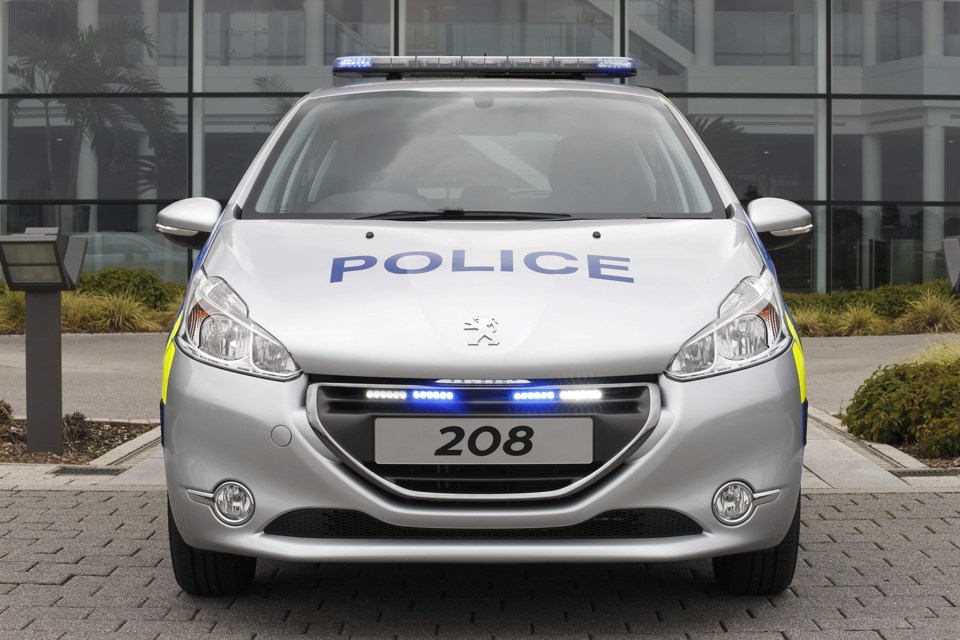Twenty police fleets across the UK are forecast to save taxpayers around £5 million under a new national vehicle purchasing agreement.
The deal is designed to drive down costs through a collaborative approach to procurement and model standardisation.
It is being led by West Yorkshire and South Yorkshire Police following an initial agreement with the north-east regional group of seven police forces. This consortium is the first to award a contract which consists of around 3,000 vehicles over the next two years, across six categories and involving 11 models from three manufacturers.
It is the first time that such a large number of bluelight fleets have joined forces and, while manufacturers had already agreed vehicles would conform to testing and standards laid down by the National Association of Police Fleet Managers (NAPFM) and the Home Office, constabularies were keen for further improvements.
That includes extended warranty periods – the majority of vehicles now have a five-year warranty – as well as vehicle size, power output and CO2 content meeting police force requirements, alongside assurances around the availability of vehicle parts and service and repair support.
Vehicle evaluation was not only about securing the lowest capital price – the contract is valued at £34m net after negotiated savings – but ensuring model selection was based on wholelife costs.
To ensure a level playing field, wholelife costs were calculated using the Fleet News car running costs calculator with fuel figures based on Home Office recommended data.
Peugeot will deliver the majority of vehicles in low performance categories, including patrol cars and small light commercial vehicles, having been successful with the 208, 308, 308 SW, 3008, and Partner Van, after being selected by the consortium for the first time.
The French marque replaces Ford, Vauxhall and Hyundai as the provider of ‘beat cars’.
BMW will provide high performance vehicles and Ford ‘low performance’ four-wheel drive models, with the providers of the panel and marked cell van still to be determined.
The new purchasing agreement builds on the three-year public sector framework agreement compiled by the Crown Commercial Service (CCS), an executive agency of the Cabinet Office, and announced earlier this year.
Steve Thompson, head of transport at West Yorkshire Police, was instrumental in bringing the police forces together and negotiating the first contract under the new purchasing agreement.
He said: “The combined purchase power of this consortium has enabled us to achieve the best possible contract and bring about some substantial savings.
“As we continue to face austerity measures, this will make a real difference, not just for policing in West Yorkshire, but up and down the country. The range of vehicles we have negotiated meets all nationally required specifications and improves upon those we currently have across our fleet.”
West Yorkshire Police calculates that it will make capital savings of more than £400,000 over the next two years as it replaces 67 patrol and 91 unmarked district vehicles through the initiative. Additionally, further savings of around £40,000 are expected to accrue as a result of moving to more fuel efficient models.
The previous framework agreement specified the vehicles available to police fleets from designated manufacturers across different sectors. The new agreement specifies manufacturers, but not which vehicles.
Thompson said that, following conversations with NAPFM colleagues, it became apparent there was a desire for further collaboration if vehicle specifications could be agreed upon.
The north-east regional group of police forces, including West Yorkshire and South Yorkshire Police, has subsequently reached agreements with Police Scotland, the north-west regional group and forces in Wales.
David Wilkin, director of resources at West Midlands Police and National Policing Lead for Vehicle Procurement and Standardisation, encouraged further collaboration, which resulted in six more forces joining the consortium.
Thompson said: “Other forces are now looking at larger consortium developments outside their previous regions prior to going to market.”
Wilkin added: “For a number of years, police fleet managers have led the way in standardisation and collaborative procurement to create better value for money and ensure police officers have the right equipment to undertake their roles.”
A new Fleet Board has been established chaired by Nigel Hiller, director of finance for Humberside and South Yorkshire Police. It includes staff from Yorkshire and Humber representing procurement and legal along with heads of fleet representing the consortium regions.
The board has decided to take any vehicle lots with healthy competition to an e-auction that would be run by the CCS on behalf of the consortium.
An anticipated £1.3m of the £5m savings is expected to be delivered through e-auctions. Hiller said: “This collaborative way of working, coupled with innovative use of online auctions, allowed us to drive down costs even further.”
Delighted at Peugeot’s success in gaining a place on the agreement, Richard Abbott, manager – national specialist fleet Peugeot, said: “We’ve long served police forces and other emergency service operations in the UK with a broad range of conversions through our PSVO (Peugeot Special Vehicle Operation), and a long-held reputation for providing high-quality vehicles and excellent service.
“The tender predominantly includes the 208 and 308 – our best-selling, award-winning cars.
“They have strong wholelife costs which was a major factor for the police fleet managers to enable them to demonstrate cost savings moving forward, while maintaining a clear focus on quality and a product that is fit for purpose.
“We look forward to helping police authorities deliver their vital services to the UK public over the coming years.”















Login to comment
Comments
No comments have been made yet.